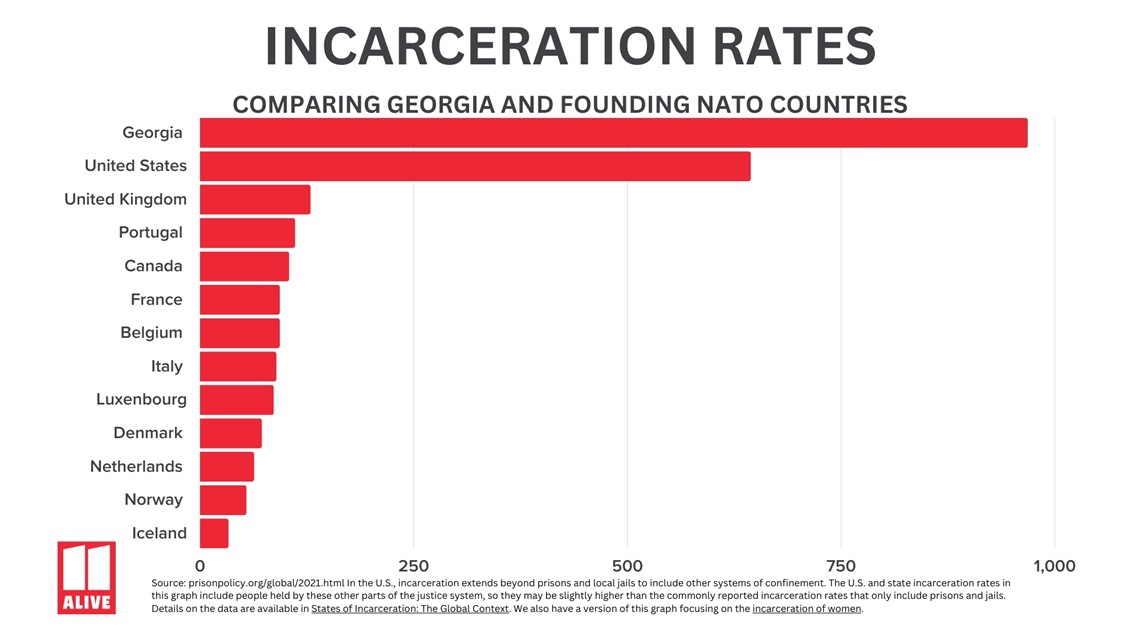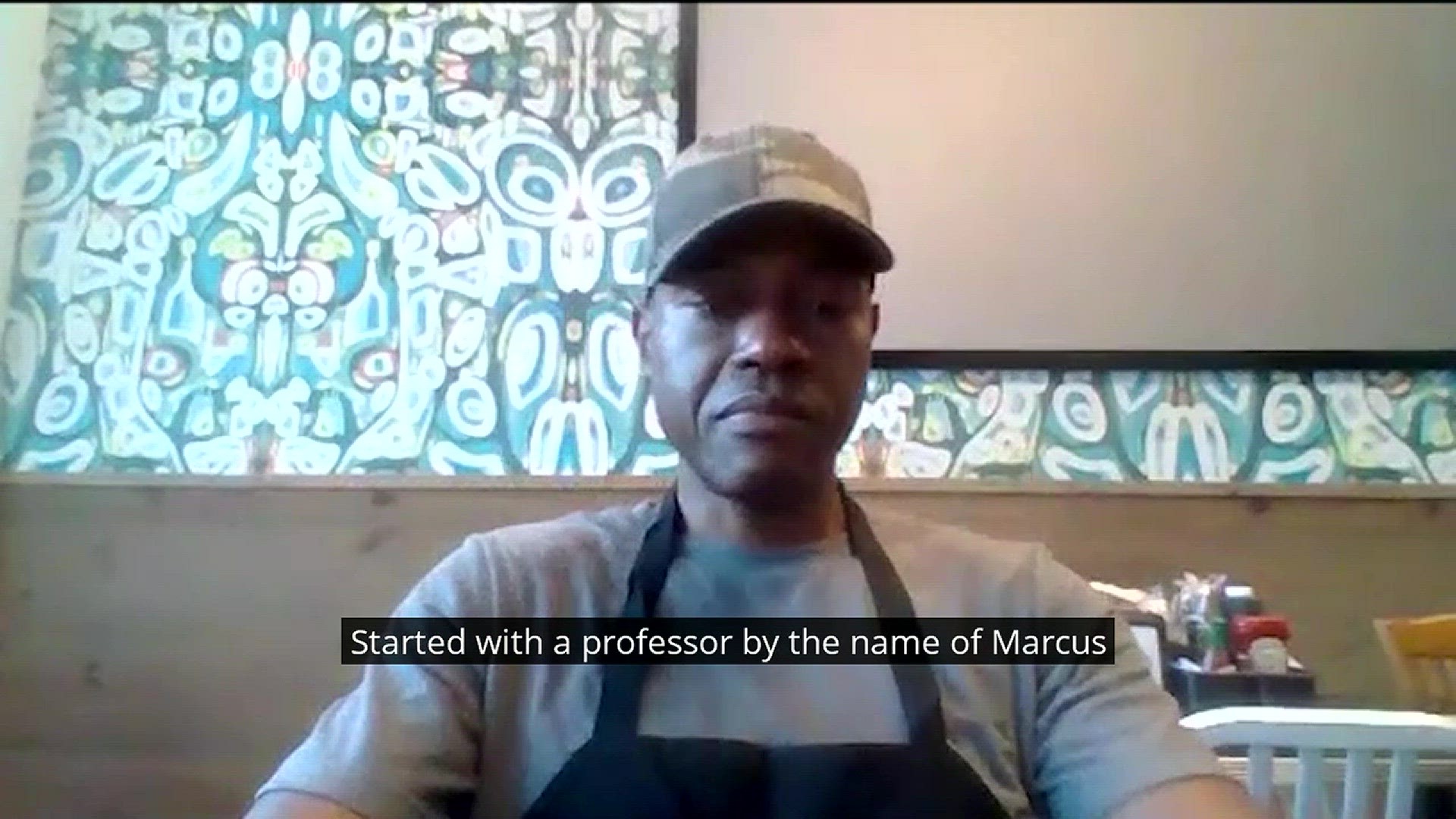ATLANTA — Georgia has a higher percentage of people incarcerated than any democracy in the world, according to a study from Prison Policy Initiative, and one project called 'The Vising Room Project' aims to put a voice to those locked behind bars.
The digital project is coming to Atlanta on Saturday through a partnership with the Southern Center for Human Rights. It invites the community to come to the Auburn Avenue Research Library to sit face-to-face with those serving life without parole and hear their stories.
"Just think about it," Terrence Guy said, a formally incarcerated person who gave an interview for The Visiting Room Project. "A person is sentenced to serve the remainder of their natural life in prison without even being given the opportunity to go before a board and present themselves and let the board themselves determine if this person is rehabilitated and worthy of another chance in society."
Each year about 2,360,000 people cycle through county and city jails in Georgia. Prison Policy reports Georgia has an incarceration rate of 968 per 100,000 people. Many of Georgia's incarcerated face extreme sentencing due to laws passed during the War on Drugs by President Richard Nixon in the 1970s and declining health conditions within jails and prisons, according to the organization.
"And in Georgia, we have thousands of people who are serving life with or without parole, and most of them will never come home," Guy said, adding later, "It's actually a death sentence because we're sent to prison to die in prison, you know, not by lethal injection, but to be put in prison and beat up till we get old, we die, we get sick, or whatever the case may be."
The main point of the project is to let those incarcerated lend their voices and perspectives as a person within the system. It features interviews with more than 100 people at Angola, the Louisiana State Penitentiary, who are serving life without parole.
"Oftentimes the narrative is always reported about, given to you, you know, from someone else's perspective," Guy said, "from a prosecutor's perspective, from a judge's perspective, from Hollywood's perspective."
Guy was arrested, tried and convicted on charges of second-degree murder in 1994 and, in June 2022, released just a day after his 49th birthday. His Attorney Mike Admirand, who also works with the Southern Center for Human Rights, said, aside from new evidence coming forward, Guy had shown great reform during his time in prison.
During his sentence, Guy earned his GED and furthered his education with two college degrees, mentored others, completed 100 programs, became an award-winning public speaker and, according to Admirand, a master baker.
"I think he proved, like so many others in the project," Admirand said, "that people change whatever the circumstances were."
The stigma that formally incarcerated people will re-offend keeps them from housing and jobs and often keeps them at arms reach from their community.
Guy said he recently participated in a panel where he heard a statement that stuck with him.
"These guys are home now, and the world hasn't blown up," Guy said, quoting a panelist. He said the phrase had a profound impact on him, revealing that there is an opportunity for re-entry.


When it comes to alternatives to incarceration, the Southern Center for Human Rights is urging lawmakers to put programs to help those who are impoverished and lack medical resources and community support at the top of their minds. Only 5% of arrests are for serious violent offenses, Prison Policy said.
The mass incarceration problem in the U.S. is large, with many of its issues stemming from lifetimes of racist and classist lawmaking, according to Prison Policy, adding that it can be amended.
Prison Policy states that in Georgia, per 100,000 people incarcerated, 640 are white, 1,099 are Hispanic, and 2,036 are Black. Those who are poor, disabled, or have mental or substance use disorders are also more likely to be arrested, data shows.
When someone is taken behind that cold prison door, and the lock shuts, they don't stop existing, and not everyone's story of how they made it there looks the same.
"So for people that are feeling hopeless, they shouldn't because, you know, I had a life sentence," Guy said. "I'm home now."
Guy said part of the journey is to never lose hope.
"You got to believe that you deserve what it is that you're hoping for, first and foremost, that you are worthy of it," he said.
Guy invites other people to meet to take part in The Vising Room Project. It will be open on Saturday, June 24, at 3 p.m. Register for the free event here.

